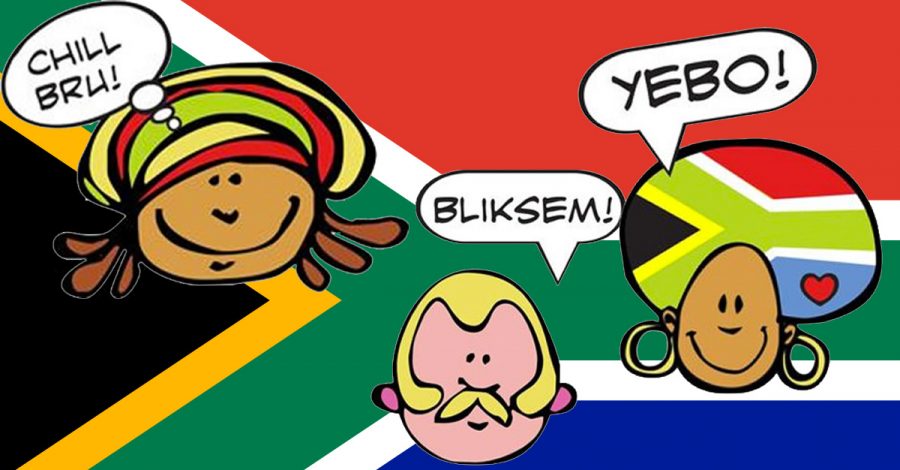
Eish Okes, We Speak a Lekker Language (South African Slang Rules!)
I received an email from a South African friend in New York yesterday in which he asked what was “potting” and said that he was “holding thumbs” for me to find a new house. If I couldn’t find my dream home, he said, “come to my pozzie and kip here. It’ll put a smile on […]
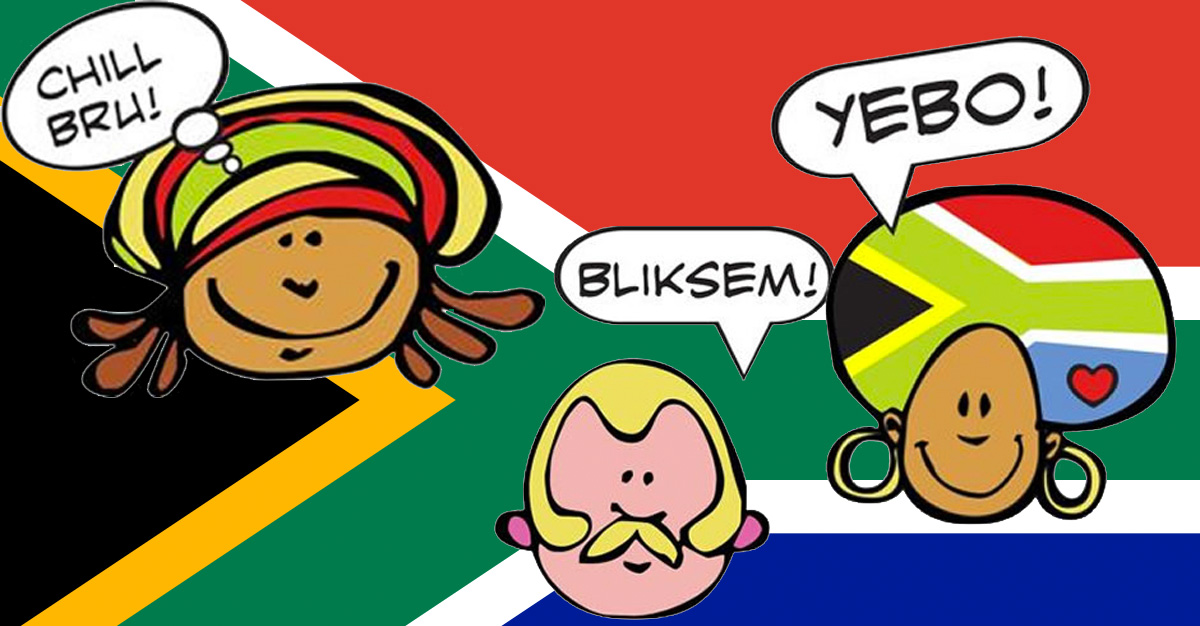
I received an email from a South African friend in New York yesterday in which he asked what was “potting” and said that he was “holding thumbs” for me to find a new house. If I couldn’t find my dream home, he said, “come to my pozzie and kip here. It’ll put a smile on my dial and we can park off and tune each other stuff about yonks ago.”
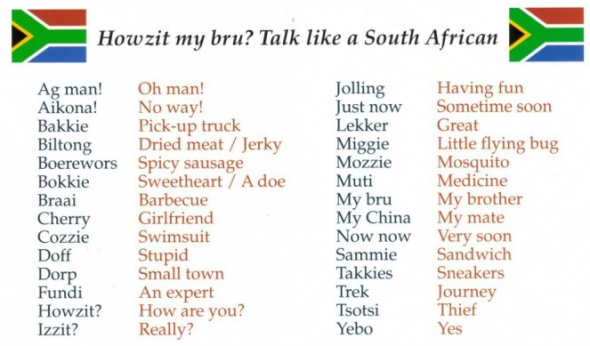
Most of his – deliberately Seff-Efriken – email wouldn’t make any sense to a non-South African (or a younger South African who has new slang words). But what slang does, china?
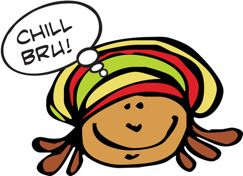
It’s okay if you live in South Africa, but for all the expats out there it’s a minefield trying to make yourself understood, especially in countries like Australia which have even more of their own unique slang! Yebo, it’s true!
But chill bru – here’s another email – written by an expat in the UK donkey’s years ago – which sums up and explains a lot of South African slang. It’s been doing the rounds forever, but unfortunately without the author’s name so we don’t know who to credit… but thank you!
Many South Africans abroad will relate to this if they haven’t seen it already:
PRAAT DIE TAAL in one easy lesson (email):
How do you explain the word “sommer” to someone who is not South African? It’s not only a foreign word, it’s a foreign concept. Perhaps the English never do anything “just sommer”. There really is no equivalent…. “Why are you laughing? Just sommer.”
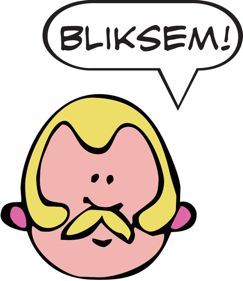
“Bakkie” is another one, very useful around this house for all sizes and shapes of containers and dishes. Also used for what they call “utes” in OZ or “pickup” in England. I find it an indispensable word.
We all know “voetstoots” of course. It’s been officially adopted into South African English. There’s no concise, one-word equivalent in English. “As is” just doesn’t hack it. And it’s such a humorous word, conjuring up images of pushing that brand new car home…
There’s no good English word for “dwaal“. It doesn’t mean dream, or daze. It’s close to absent-mindedness, but that’s not quite it. Being in one so often myself, I’m not likely to stop using it.
I think “gogga” is the most delightful word for insect I’ve ever heard. Children all over the world should use it. “Insect” just doesn’t stand a chance.
And then there’s “gatvol“. OK, I know it’s very rude. But it’s so very expressive.”Fed up” doesn’t have half the impact. “Gatvol” is a word used more frequently than ever in the workplace these days, with increasing intensity.
While we’re on the subject, another phrase which outstrips any English attempt is “Hy sal sy gat sien“. “He’ll get his come-uppance” definitely lacks the relish in comparison.
“Donder” is another very useful word, used as an all-purpose swearword, which again has no good English translation. Used as a verb, it can express any degree of roughing up. As a noun, it is a pejorative, as they politely say in dictionaries, to mean whatever you want it to mean. And there’s no good translation for “skiet-en-donder” either.
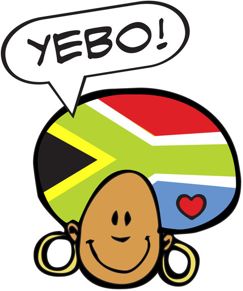
It says something about the English that they have no word for “jol“. Probably the dictionary compilers regard it as slang, but it’s widely used for “Going out on the town, kicking up your heels, enjoying yourself. Although curiously, the word “Yule” in Yuletide is related to “jol” and derived from Old English. So somewhere along the line, the English forgot how to “jol”.
How do you explain the passion of “lekker!”? “Wow last night was a “lekker jol”.
I’ve yet to meet a South African over the age of two who doesn’t use the word “muti“. Translation is impossible – “witches potion” is about the nearest I can get. It needs a long cultural historical explanation. Between “muti” and the pedantic “medication”, there’s simply no contest.
And of course, my personal favourite “Kak en betaal” , which just says it all, doesn’t it? A bland English translation would be “Cough and pay”, or “Breathe and pay”. But it just doesn’t cut it, does it? Not by a long drop.
Other words that come to mind: “jou bliksem“, “wag ‘n bietjie“, “nie so haastig nie“, “just now“, “sakkie-sakkie music“, “ou swaer“, “Ya, nee“, and one of my personal favourites, “Poephol“.
“Dudu“. Telling your infant to “go to bed” is just not the same as, “Go dudu now, my baby!”
How about “bliksem“? “I’m going to bliksem you!”. Wonderful Afrikaans expression with nothing to compare in the English language, at least nothing that gives the same satisfaction.
“Mielie pap” – there is no word like”pap”, here. They have porridge, and when they say porridge, they mean oats. There’s no Maltabela, no Tasty Wheat, No Creemy Meal… in other words, there’s no “pap”!
“Mislik” – such a ‘lekker’ word. “Why are you so mislik, you little skelm?”
Which brings us to “skelm” – here you just get “baddies”, but that doesn’t have the same sneaky connotation of a proper skelm, does it?!
And “snot-klap“… fabulous word! “Do you want a snot-klap?” How would you say that in English? “I’ll slap you so hard the snot will fly!”? It’s just not the same.
“Loskop” is another favourite. The English just don’t understand when I say, “Sorry, I forgot – I’m such a loskop!”
And finally….. “moer“. There simply isn’t a word here that denotes the feeling of dread behind the phrase “If you don’t clean your room, I’ll moer you!”
If you love all things South African:
- Don’t miss SAPeople’s weekly Podcast, packed with all the GOOD stuff!
- Subscribe to Showmax for thousands of SA movies and shows. Subscribe now and get 2 weeks free!
CLICK HERE FOR A COMPREHENSIVE GUIDE TO SOUTH AFRICAN ENGLISH.
